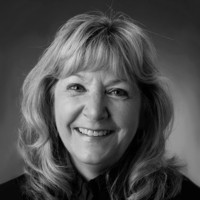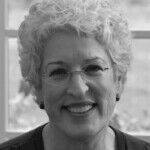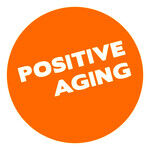The older we get, the more likely it is that we will experience hearing loss, according to the National Institutes for Health. About one in three Americans between the ages of 65 and 74 has hearing loss. Among those older than 75, one of every two people has hearing loss.
What happens is the ear and its nerve pathways can change over time. In addition, certain diseases and medical treatments can be toxic to the ears. Long-term exposure to sounds that are too loud or last too long can cause hearing loss as well.
Can healthy eating reverse the effects of aging on the ear?
A research team led by Gary Curhan and Sharon Curhan of Brigham and Women's Hospital analyzed questionnaire responses from about 71,000 women who took part in the Nurses' Health Study II between 1991 and 2013. The research was supported by NIH's National Institute on Deafness and Other Communication Disorders (NIDCD) and National Cancer Institute (NCI). Results were published in the Journal of Nutrition.
At the beginning of data collection, women taking part in the study were between 27 and 44 years old. Most were white women. Using mailed questionnaires, the research team asked the women every 4 years about their eating habits over the past year. They were also asked whether they had developed a moderate or severe hearing problem.
The team used the reports of food intake to calculate scores for three healthy dietary patterns: the alternate Mediterranean diet (AMED), Dietary Approaches to Stop Hypertension (DASH), and the 2010 Alternative Healthy Eating Index (AHEI-2010). AMED is based on fruits, vegetables, nuts, whole grains, legumes, and olive oil and encourages eating fish and drinking only a moderate amount of alcohol. DASH encourages fruits, vegetables, nuts, lean meats, fish, and low-fat dairy, and limits sodium, sugar, and fat. Like the others, AHEI-2010 encourages vegetables, fruits, whole grains, and limits sugar, salt and animal fat.
Over the study period, 2,306 women reported having developed moderate or worse hearing loss. The researchers found that women whose dietary patterns most resembled AMED or DASH had about a 30 percent lower risk of hearing loss than women whose diets least resembled them. The women who didn't have AMED or DASH dietary patterns also seemed to be more likely to smoke and have high blood pressure, and less likely to be physically active. The scientists adjusted their models to account for these differences.
"Interestingly, we observed that those following an overall healthy diet had a lower risk of moderate or worse hearing loss," says Sharon Curhan. "Eating well contributes to overall good health, and it may also be helpful in reducing the risk of hearing loss."
Q and A
Q: I have been seeing more and more about A2 milk and its supposed health benefits. What is A2 milk, and is buying A2 milk worth the hype?
A: Casein is the main type of protein in cow's milk. About a third of it is a type called beta-casein, which itself comes in two forms: A1 and A2. Different breeds of cows produce primarily A1 or A2 - or a mix of both. A2 milk products are made from dairy cows that produce milk with only A2 protein. According to a recent systematic review, studies in animals and laboratory research have shown differences in the gastrointestinal effects of A1 of A2 milk. There have been fewer studies in humans. Some observational studies have associated milk containing A1 protein to increased risk for type 1 diabetes and heart disease, but the evidence is not conclusive at this time. Despite the controversies in the research, A2 milk may be beneficial for individuals who experience digestive discomfort after consuming cow's milk. However, for individuals with a milk allergy or confirmed lactose intolerance, this product should still be avoided to prevent an allergic reaction or digestive discomfort. - Tufts University Health & Wellness Letter.
Charlyn Fargo is a registered dietitian at Hy-Vee in Springfield, Ill., and the media representative for the Illinois Academy of Nutrition and Dietetics. For comments or questions, contact her at charfarg@aol.com or follow her on Twitter @Nutrition Rd. To find out more about Charlyn Fargo and read features by other Creators Syndicate writers and cartoonists, visit the Creators Syndicate website at www.creators.com.






View Comments